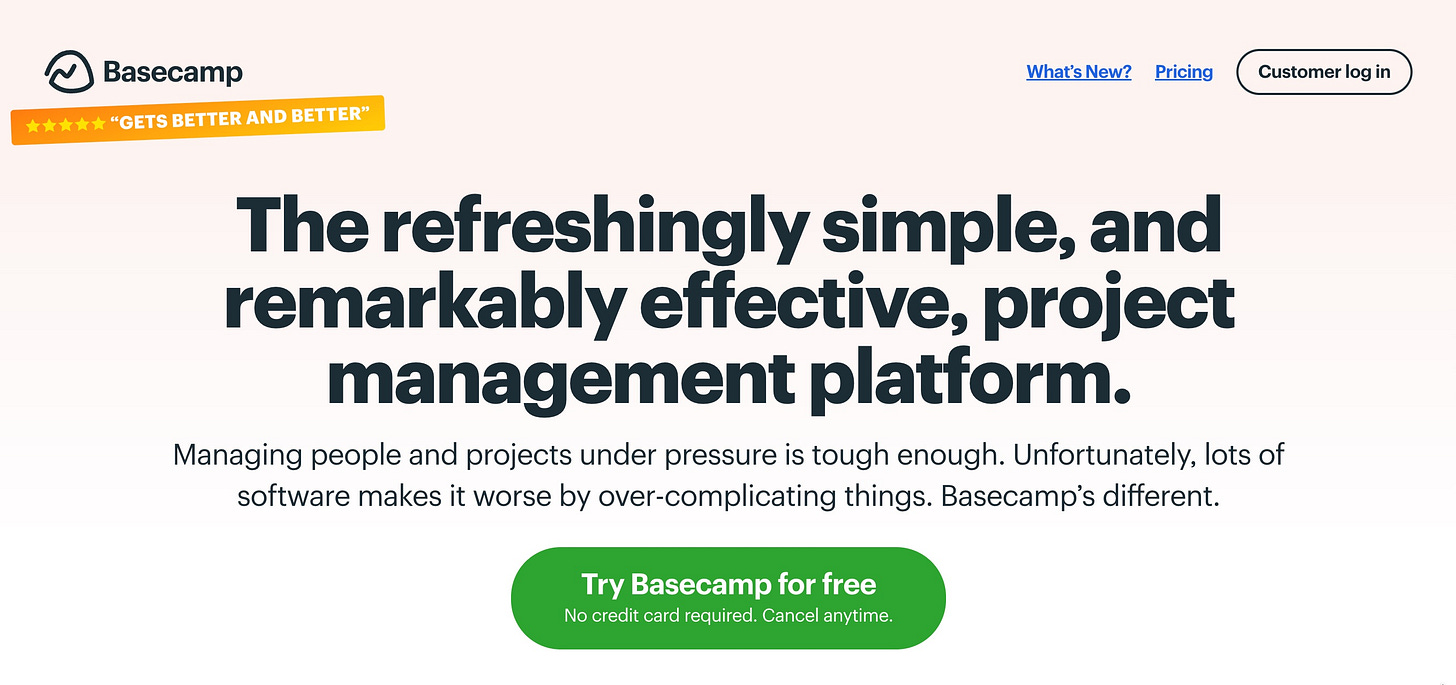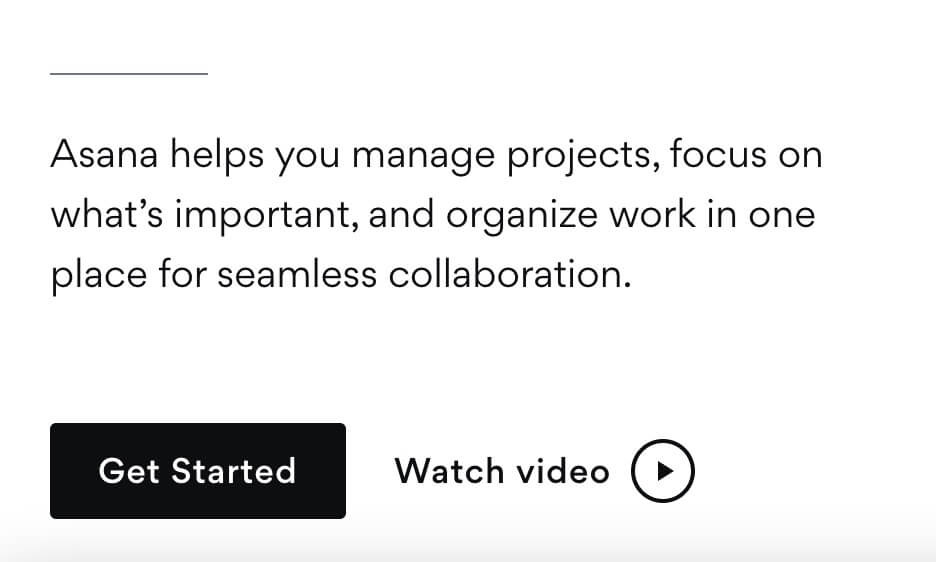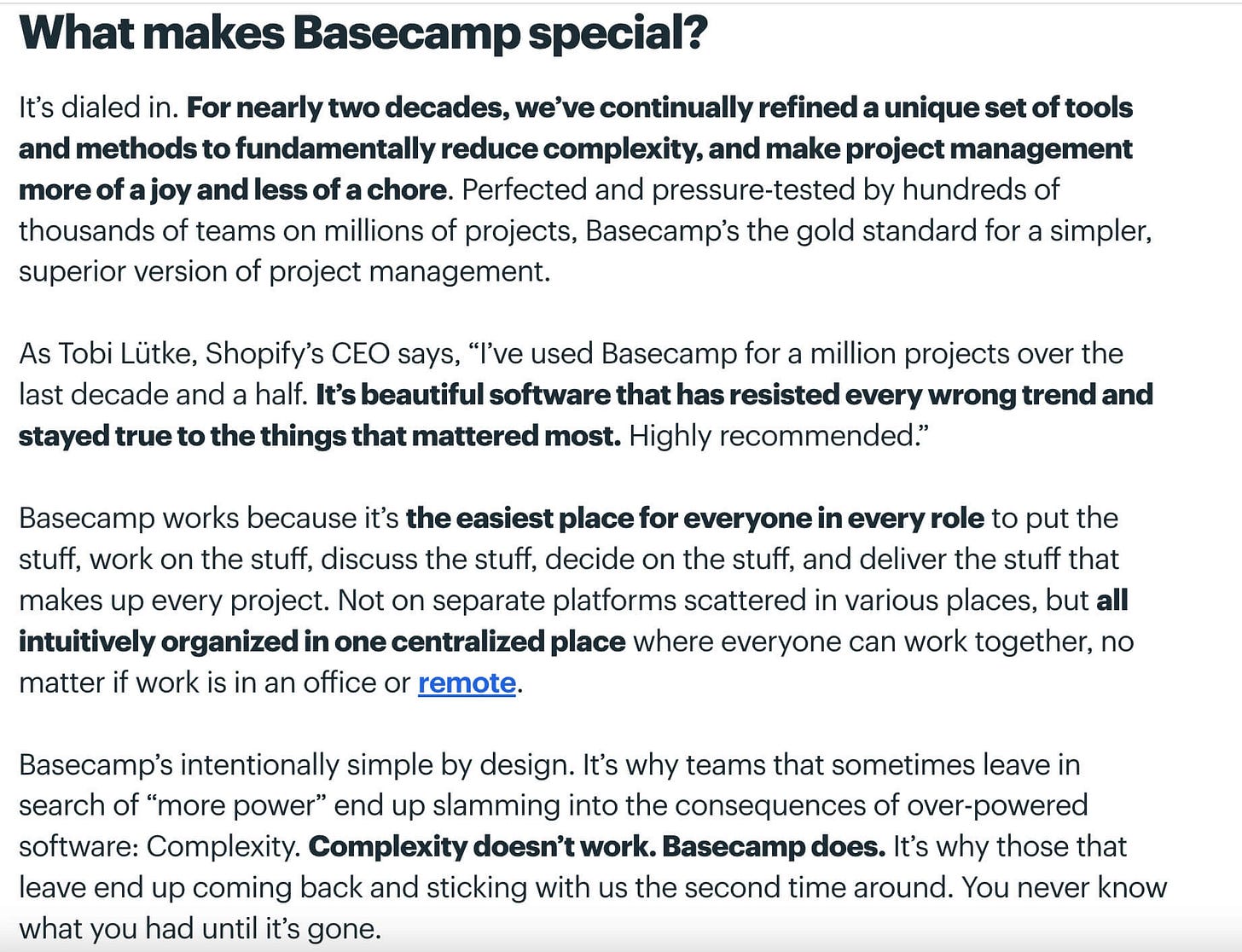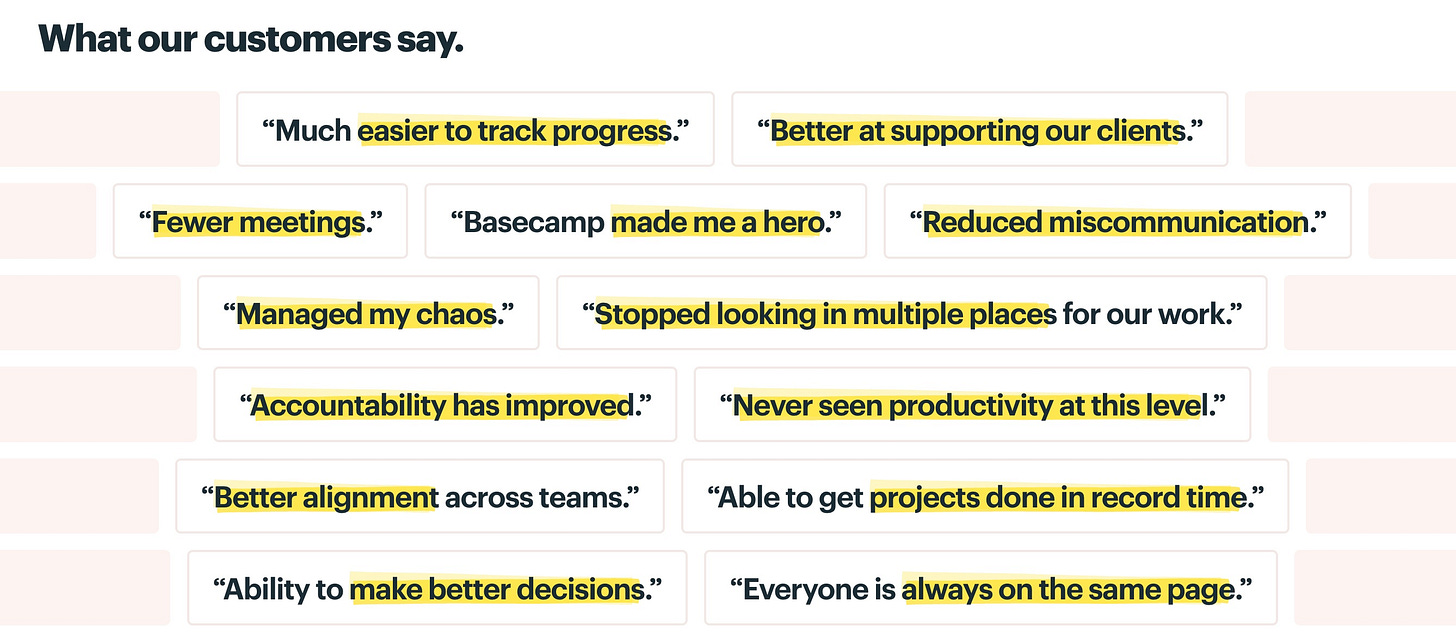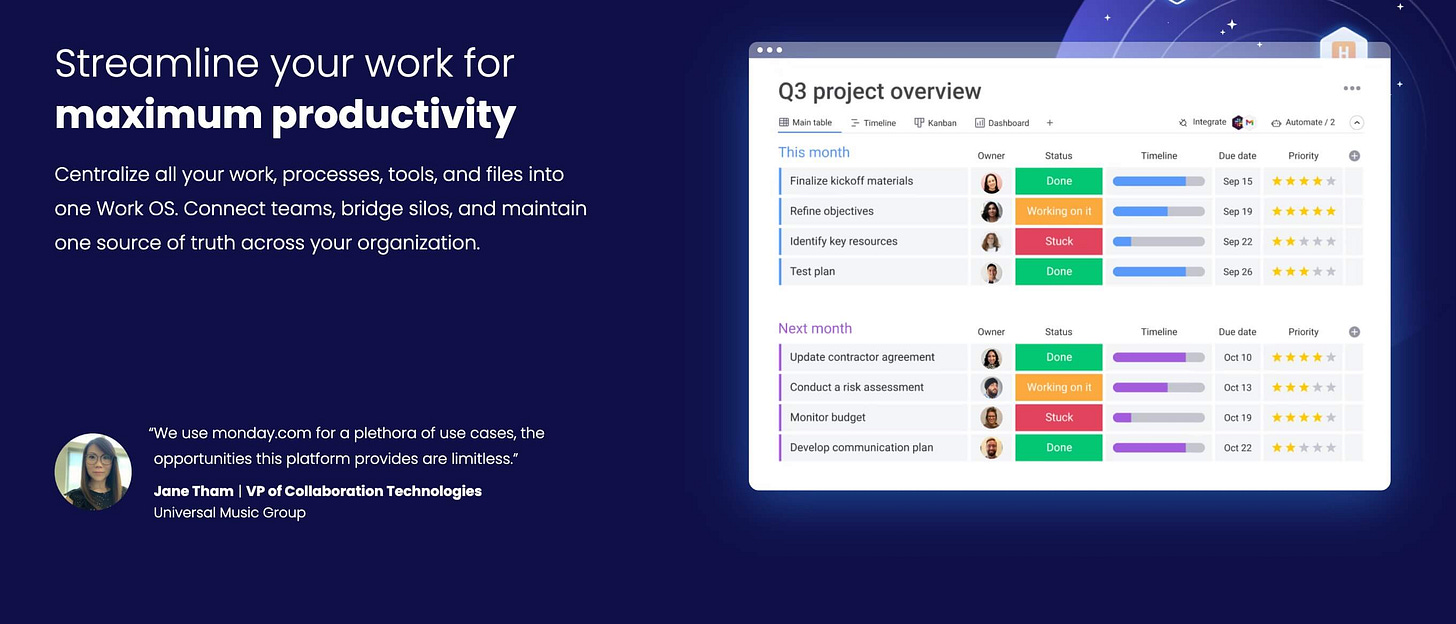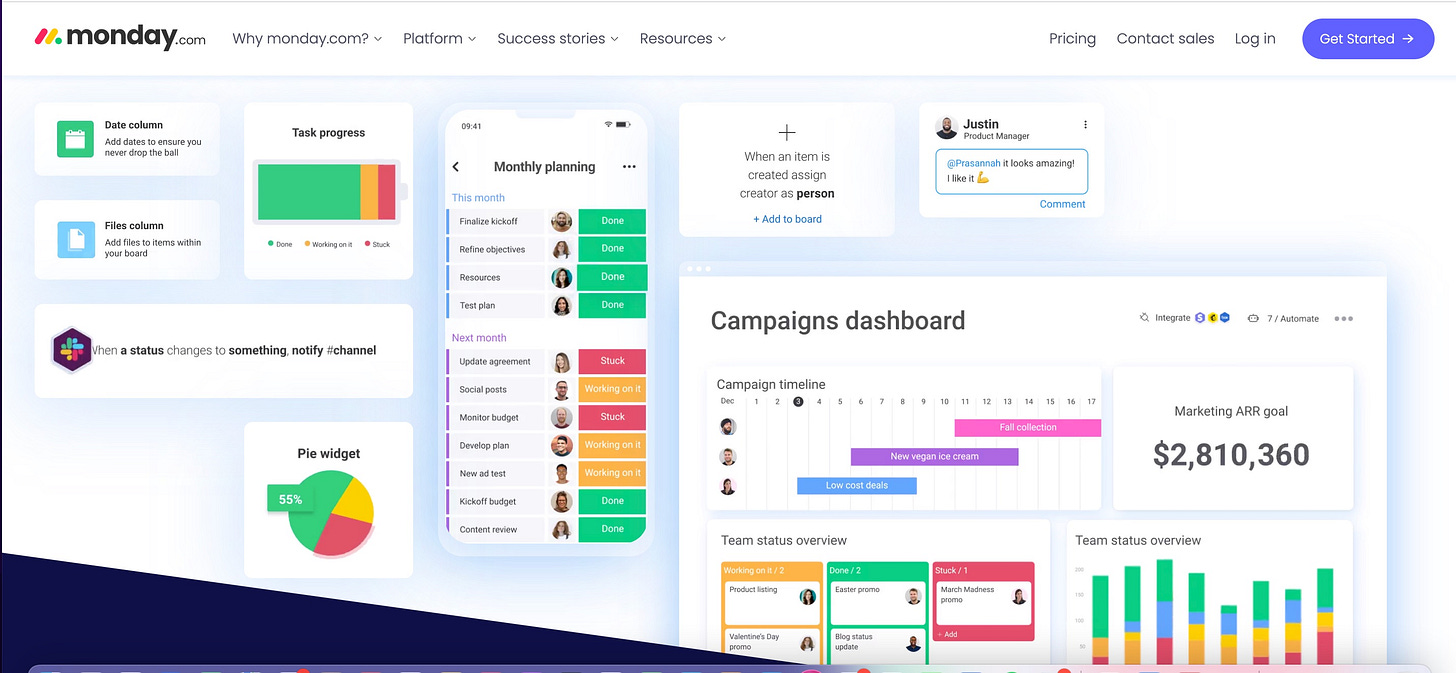2023's Best Website...So Far
And does culture only matter during the good times?
Hello Gobbledeers,
It feels like we last chatted, oh, 9 years ago? Is that how long it’s been? It kinda feels like it. Did you have fun in Florida over the break? Yes? Great, me too.
Before I jump into today’s main topic, I’ve been thinking about culture.
I spent 2016-2022 working for startups, and during those years there was lots of talk about genius founders and brilliant venture capitalists. And there were approximately a zillion articles about the importance of culture to building great organizations.
And those founders and those venture capitalists regaled the world with stories about how they developed incredible cultures, where people argued productively, and where lunch was a communal event, and where you and me were free to be, you and me.
Coincidentally, 2016-2022 was a period of unprecedented startup investment because interest rates were basically zero. You could screw up because you could (almost) always go raise more cash. Raising more cash covers up a lot of mediocrity.
And buys a lot of culture.
Well, that obviously all turned to shit in 2022, and suddenly we didn’t hear that much about how culture was the most important thing (eating strategy for breakfast, as goes the quote misattributed to Peter Drucker.)
And also, please get your asses back to the office because we obviously lost our culture when we worked from home, and that’s why our stock is down 82%. The lost culture. That’s why it’s down.
I say all that because I keep thinking about a line in an interview in the NY Times this week where the journalist David Marchese is interviewing Golden State Warrior Draymond Green. Marchese mentions how the Warriors - a team that’s been incredibly successful - have also been to known to have a great culture.
Until an incident earlier this season where Green punched a player on his team. Marchese then says this:
Maybe the simple truth is that if you’re winning then it’s easy to say culture has something to do with it, but if you’re losing then culture’s not going to help.
I keep thinking about that quote. And something Warriors coach Steve Kerr said about culture: “If you can’t maintain your culture during the down times, then you don’t really have a culture. It’s just dependent on winning. The culture has to survive losing stretches.”
A lot of companies in Startupland are struggling, and will continue to struggle in the coming months as sales cycles grow longer (and longer…and longer). Maybe they didn’t have great culture before - maybe they were winning because low interest rates made raising capital easy. Listen to how few talk about how they’ve maintained their culture during the struggle. As Kerr says, maybe there was never culture to begin with.
And as Warren Buffet said, when the tide goes out, you learn who was swimming naked.
Return to Basecamp
For part 2 today I thought I’d go Gobbledy old school - originally this newsletter was going to be mostly looking at examples of tech companies’ bad (and sometimes good!) (but mostly bad) positioning and messaging. It’s the beginning of the year and I’m filled with optimism (obviously), so I wanted to share an amazing homepage example from the project management product Basecamp.
They’ve thrown out so many of the conventions we’ve seen everywhere else (logo block, octopus, gobbledy descriptions), and gone with an almost graphics-free, 4-section homepage that I wanted to share.
The top:
Before we look at that copy, take a look at the 5-star review under the logo. I’d never really questioned it before, but why are reviews (if there are any at all) usually buried 7 sections deep on the homepage? (I don’t know.). Why wouldn’t you put the 5-star review right at the top under the logo? (I don’t know.)
I’d guess that Basecamp has decided that “simple” is their unique selling point. That all of their marketing will be around the idea that the alternatives to Basecamp (whether you’re using email and spreadsheets or using other software) are just too complicated. Everything they write is about simplicity.
“Refreshingly simple” is super clear. There’s empathy in the next line (managing people is tough enough…), showing that they understand your pain. They differentiate themselves from the alternatives in a specific way - other software is “over-complicating things.” Basecamp isn’t “better” or “the best project management software.” It’s “simple” and alternatives are “complicated.”
Clear as day.
Oh, and of course I love the giant button.
Here’s how their competitor Asana (which, btw, is a perfectly good project management tool) shows their button:
Bleh. don’t do that.
The next section is their 3-minute video explaining how Basecamp works. The video is worth watching because it continues to hammer home the simplicity message — it actually shows the product and shows why it’s simple. Simple. Simple. Simple.
Then, a copy block that would cause most software companies to chop it down by 92% and replace it with “the only data-personalized project management suite for forward-believing creativists craving world-class personalization” or whatever.
The copy is great - the bold sections all support the simplicity idea. Except…
Except I have a very strong aversion to software companies saying that their product will make your job “a joy” or “fun” or “Mardi Gras, Coachella, a pile of cupcakes, the running of the bulls, and your 7th birthday party’s bouncy house all rolled into one.”
Longtime readers may remember my litany of complaints about this in the column on HR software, where every single one of the companies mentioned talked about how “fun” it could be to process payroll (“Who knew payday could be fun for everyone?”). Oh hellllllllllllll yeah, it’s open enrollment, bitchez!
All work is a chore. It just is. That’s not a complaint, it’s just a fact. Work can be enjoyable, certainly. But it’s work, and we’re grownups and we can accept that. And if there’s some magical thingy that can make work less miserable, that’s wonderful! I’m so excited to try it! But not because it’s “a joy.” Less burdensome does not equal “joy.” Nor should it. A toilet brush makes hand-cleaning a toilet less of a chore. But it doesn’t make it a joy. (Somehow Basecamp is a toilet brush in this scenario.)
I guess what I’m saying is - tone it down a notch.
The Joy of Reviews
Basecamp’s site has the best use of reviews I’ve ever seen.
Take a look:
Social proof is powerful (duh..Actually, I’m sorry for insulting your intelligence. You knew that.)
Most sites will have some sort of testimonial on the homepage, and it will say something like, “This thing made it a joy to put only middle aged white guys on our Board.” Or whatever.
The quotes Basecamp uses actually reflect specific benefits of the product - “made me a hero” and “fewer meetings” and “accountability has improved.” Actual benefits.
Compare that to competitor Monday.com:
Assuming you can even find it, the review basically says, “Monday.com does things.” (The quote says they use Monday for “a plethora of use cases,” which I find to be too cute by half. Please don’t use “plethora” on your homepage.)
Do you think you’d be more likely to buy a product that promises you’ll stop “looking in multiple places for your work” and “managed my chaos” or one that offers a “plethora of use cases”?
(By the way - Clients don’t say “use cases” - software companies say “use cases.” Clients say “my work” or “things I have to do” or “my projects” or “all the things I do each day” or whatever. Be careful in your language about using the insular gobbledy every software company uses - the way you describe things is not the way your clients do.)
And finally - I really appreciate that Basecamp uses a lot of copy on their site. They do a great job of calling important phrases out by bolding them, but they do use a lot of words.
Companies think words scare people, and that imagery helps break up the page. Monday does this on their site, but the effect isn’t breaking up the page, it’s making their product look cluttered and difficult to use:
Y’know what? It does look like it does a plethora of things.
As always, thank you for being part of the Gobbledy community. If you’d like your website to be more Basecamp than Monday, that’s what I do for a living - I’m happy to help (shoot me an email at jared@sagelett.com).


